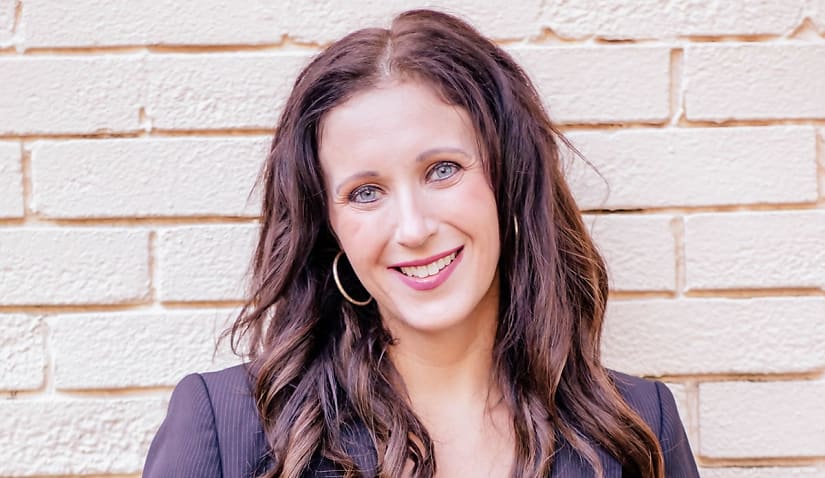Being able to communicate clearly to clients and your own business means in-house lawyers will be more accessible — and, according to this GC and professor, is something that should be taught in law school.

Based in Miami, Krista Russell is an adjunct professor of law at the University of Miami School of Law and the deputy general counsel of Airbus One Web Satellites.
When studying law, Ms Russell knew she wanted to be in-house — where “business and law intersect” — and said that whilst law school prepares graduates to think like a lawyer, it doesn’t necessarily prepare them to practise like a lawyer.
“There is a gap between what we’re taught in law school and what you realise three to five years later, which is really how to practise, how to be a lawyer. My goal is just to simply get people there faster, maybe to share some common speech and tips along the way that I have found. I use my LinkedIn,” she said.
“I think that’s how you and I connected initially, just to offer up some value in that area and to try to make the law more accessible because I really believe that law that is not accessible to everyone is really unjust. Even though we’re in a business corporate environment, at least I am, it is important that it be made common to business practitioners as well.”
According to Ms Russell, businesses can use lawyers in a number of different ways, with the accessibility aspect of in-house lawyering something she’s been aware of from early on in her career.
“I want to be the lawyer that business people want to come to before there’s a problem. I want to be the lawyer that people come and strategise with. I want my team to be lawyers that are looked at as an extension of the business objectives and essentially another arm of the business. In order to do that, you have to immerse yourself in the business.
“You have to learn the business, learn the margin, learn the cash flow, learn how the widgets work and all of the behind-the-scenes things in order to be an effective business partner. For me, the primary driving factor behind how I practise law is understanding business. I think that makes me a much better lawyer or anybody,” she explained.
“That doesn’t mean someone sends an email and just acknowledges it, but it really means providing value. It means if somebody’s reaching out, showing them that they made a good choice in doing that. I think the hardest part of lawyering in a business environment is getting to yes. It’s much more skilful in the practice of law, I think, trying to point your internal compass towards yes, at the end of the day.”
However, striving for these kinds of objectives is made harder by the aforementioned gap between how law students are taught to think about the law versus actually practising it.
“I’m fortunate to work at a university of law school where they have this transactional skills program, which is really part of closing that gap. I’m not the creator of the program. I’m just one of the adjuncts that’s lucky enough to teach within that program, but I really believe that those are the life skills necessary to practice, and not to dumb down the quality of the course or any other content, but it really does work to fill that gap,” Ms Russell added.
“By closing that gap or even just finding, like I said, common speak among lawyers already practising, it allows us to elevate the profession. I always teach my students, you want to practise at the top of your license. You want to be at the best of your game. I think there are certain ways to do that. One of those involves getting to the common ground of, here’s what I learned and here’s how to practice it quicker.”
Being able to communicate effectively with clients and stakeholders is also especially important post-pandemic — and Ms Russell said that particularly in-house, she’s noticed an uptick in “unnecessary meetings and superfluous emails”.
“What I try to teach my team, even in my current role now, is the words we use are important, and we only need to use the number of words necessary to convey the message. I try not to be the boss that requires the check-ins or even needs them in any regular standpoint. I like to be the boss that has employees getting their work done in whatever way they need to get it done.
“I think that just to come back to the legalese issue of it, if we’re not speaking the same language and we don’t have the opportunities for the interoffice chat, how else can we close that gap? How else can we find those common grounds? I think when we bring it back to basics, I try to find a balance between formal speaking, which I think lawyers should always communicate formally, but not speaking in words that the general population doesn’t understand,” she noted.
“When you have a certain audience, sometimes you feel the need to really up the language that you’re using. However, I do think we want to present ourselves as not elitist. If you want to be accessible, you have to use accessible language. It’s very simple to stay formal, but to use plain English.”
The transcript of this podcast episode was slightly edited for publishing purposes. To listen to the full conversation with Krista Russell, click below:

Lauren is the commercial content writer within Momentum Media’s professional services suite, including Lawyers Weekly, Accountants Daily and HR Leader, focusing primarily on commercial and client content, features and ebooks. Prior to joining Lawyers Weekly, she worked as a trade journalist for media and travel industry publications. Born in England, Lauren enjoys trying new bars and restaurants, attending music festivals and travelling.